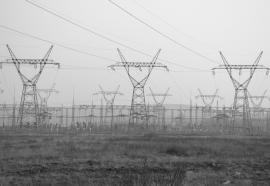Charles River Associates
Tranche Warfare
The experts do battle over capacity market design.
Congestion on Trial
PJM and the crisis over FTR underfunding.
PJM’s latest crisis—the underfunding of financial transmission rights that we’ve seen over the last few years—pushes regulators right to the edge. How far do they trust wholesale power markets? Do they accept the idea, proven by a famous economist, that freely traded financial instruments can work just as well—better even—than firm, physical contract rights?
In PJM’s case, we are told, the problem occurs when too much negative congestion shows up in real-time balancing. But if congestion is bad, shouldn’t negative congestion be good?
No Fuel, No Power
Lessons from New England on electric-gas market coordination.
Nuclear Faceoff
Indian Point and the battle for the nation’s energy future.
State lawmakers are trying to block relicensing of the Indian Point nuclear power plant near New York City, but the owner hopes to keep the plant generating low-cost electricity. The battle over Indian Point raises new legal issues—and represents a microcosm of the struggle for America’s nuclear future.
Low-Income Reality Check
Evaluating the impact of dynamic pricing.
Are residential time-of-use prices only effective for middle class households, or do low-income customers benefit too—as authors Lisa Wood and Ahmad Faruqui asserted in their October 2010 article? Data from pilot programs show that low-income customers exhibit a reduced ability to benefit from dynamic pricing. Demand response programs should accommodate the realities of low-income customers’ consumption patterns.
When Markets Fail
New England grapples with excess capacity and rock-bottom prices.
“Corrosive.” “Seriously flawed.” On the “brink of market failure.”That’s what critics say about New England’s forward capacity market (FCM), whereby ISO New England conducts auctions to solicit offers from project developers to make electric capacity available three years into the future to meet anticipated regional demand.
Rethinking Prices
The changing architecture of demand response in America.
Pilot projects are demonstrating the potential of smart metering and smart rates to make the most of supply and demand resources. But as empirical studies show, not all pricing designs are equally suited to every region.
'T' Party Revolt
Transmission expansion costs are spread unevenly, driving a wedge between utilities and regions.
Back in June, the Bismarck Tribune ran an interview with North Dakota Public Service Commissioner Tony Clark that showed just how difficult it is to build national consensus for renewable energy.
Buyer's Remorse
The PJM complaint and the rising cost of electric reliability.
Who says ratepayers must accept the traditional measure of electric reliability—a single one-hour outage every ten years? If shown the bill ahead of time, might they decide otherwise; that such luxury is no longer affordable? Consumers are making similar decisions about gasoline and mortgages. Why not electricity?











